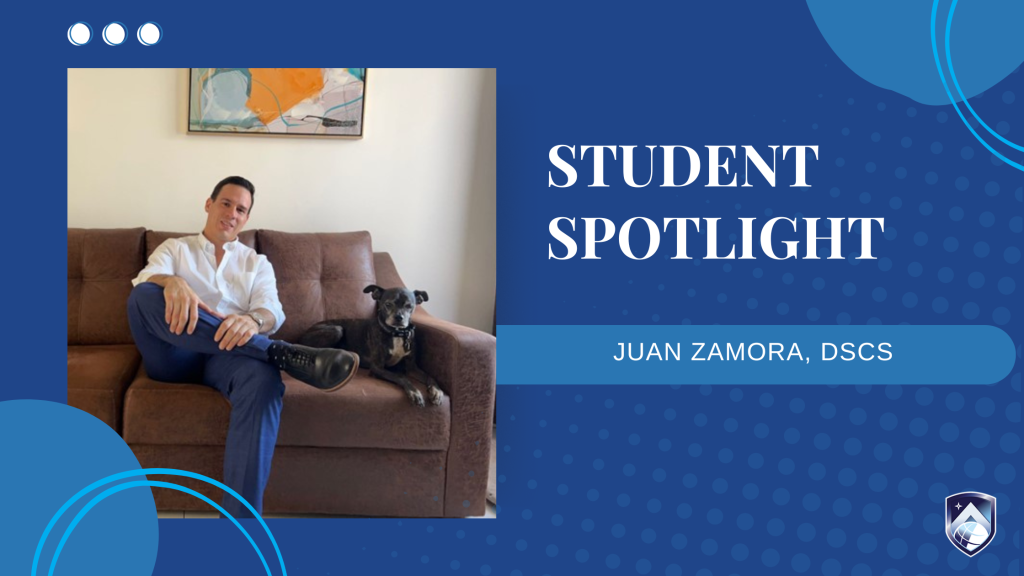Higher education is more accessible than ever, and advanced degrees are more sought-after to unlock opportunities and elevate careers to new heights. That’s exactly what Dr. Juan Zamora did by earning his Doctor of Science in Computer Science degree in November 2020. With the loyal companionship of his rescue dog, Milo, Juan utilized his doctoral journey to deepen his expertise in computer science and pave the way to a more specialized career. Read Juan’s story below!
In 2013, I moved from Costa Rica to the US to work as a Director of Software Engineering for a large medical corporation in the Southwest. At that time, I already had plenty of experience in software development and architecture: a BS in software engineering, an MBA with an emphasis in institutional management, an MS in information technology, and some additional certifications.
While working in my new role, I started to discover other professional paths that came along with my responsibilities, especially working with data and predictive analytics. I had minimal experience with mathematical models then, so I enrolled in some MOOC courses to learn more. This kickstarted my interest in optimization, function approximation, and artificial intelligence in general.
After a conversation with the company’s Chief Technology Officer, I decided to engage more with predictive algorithms. There was a lot of value in the company’s previously unexplored data, so I endeavored to learn more and become an expert in the matter. As I already had two master’s degrees, I looked for other options that would allow me to study and research while working. I looked for educational opportunities that would take my career to the next level while granting me the flexibility I need to continue with my personal and professional life.
In 2014, I started the Doctor of Science in Computer Science program at Aspen University, where I focused my research and dissertation on applied machine learning. Right after enrolling, I went to Animal Humane to get a roommate. I adopted Milo, a terrier mix who helped me stay rational after long hours of reading and writing. I completed the program in 2020 and received the Doctoral Exemplar honor for my dissertation “Video-based Costa Rican Sign Language (LESCO) Recognition for Emergency Situations” with a 4.0 GPA. Milo has been my best friend ever since.
It has been almost five years since I completed the program and ten after getting Milo. My core skill set in machine learning, artificial intelligence, and predictive models was built while I conducted research for my doctorate. Since then, I have transformed my software development career from full-stack developer to data scientist. In my new role I have helped universities create AI-related educational programs, served as conference research reviewer, and performed many projects for companies of all sizes that needed machine-learning solutions from simple regression models, classification tasks, LLM-based bots, to audio transcription and vision-based solutions.
Today I enjoy life in Costa Rica: working from home, creating ML models, and taking walks with Dr. Milo twice a day.

